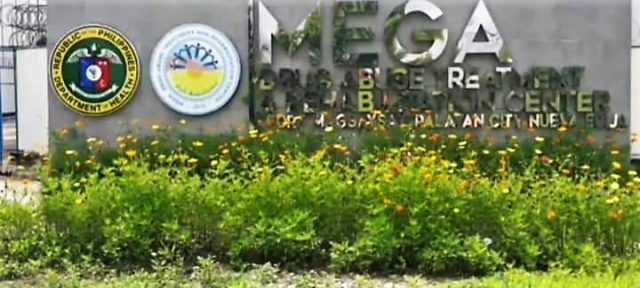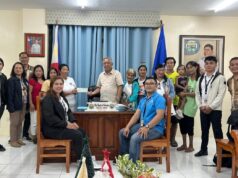FORT RAMON MAGSAYSAY, Palayan City — Five years ago, Broom, then a drug-
crazed resident of Pasig City was involuntarily brought to the mega Drug Abuse
Treatment and Rehabilitation Center here by his mother for treatment.
Now at age 57, Broom stays at the facility as a volunteer utility worker as he sees
himself, amid the hardship of a family stolen by addiction, shielded from possible
relapse that re-association with old barkadas may create.
"Pag lumabas ako, wala naman akong gagawin, wala naman akong trabaho, mas
maganda na nandito ako," said Broom who admitted having been rehabilitated 18
times prior to DATRC.
He, however expects, to be employed at the facility like some of his fellow
"residents" who now turn to be "house parents."
An abuser of various substance – from syrup to shabu, since age 13 – Broom was
one of some 3,000 residents who have finished six to 12 months of treatment and
rehabilitation for severe cases since the facility, a banner project of the Duterte
administration for anti-drugs program, was established in 2016.
Dr. Nelson Dancel, chief of hospital, looks up to each of them a monument of
success, noting that these graduates have "successfully returned as productive
members of the society."
"Our relapse cases are very minimal and have been acted upon by our after-care
division," Dancel said.
Aside from a village chief in Cabanatuan City who had since left politics, the
facility has treated some professionals including a dentist and former uniformed
government personnel, according to Dancel.
Of the 244 residents presently being taken care of at the center, 32 are female
and 212 are male with age ranging from 18 to 60 years old.
Every day, the residents hold "morning meetings" where each one of them share
life lessons and display talents, on top of traditional rehabilitation activities. They
also have a music hall with a set of band instruments and gym equipment.
With the learning equipment, including computer sets, provided by partner
agencies, residents also hold online and physical classes on livelihood with the
help of Technical Education and Skills Development Authority, it was learned.
They are also taught vermiculture to produce organic fertilizer.
Dr. Villamin Patricio, chief of health program, said some of their graduates from
places outside Nueva Ecija have decided to seek employment in the province.
"May mga construction company na sumusuporta sa programa at hina-hire sila,"
Patricio said. "Ayaw na kasi nilamg makasama yung mga dati nilang barkada kaya
humahanap na sila ng trabaho dito."
Dancel said the Department of Social Welfare and Development also see to it that
the families of people who enter the mega DATRC are taken care of.
"Kaya nga bago sila pumasok dito, dapat alam ng local government. Kasi nga kung
breadwinner 'yun ipapasok nila dito, hindi rin mapapanatag 'yun. Yun ang role ng
DSWD," he said.





